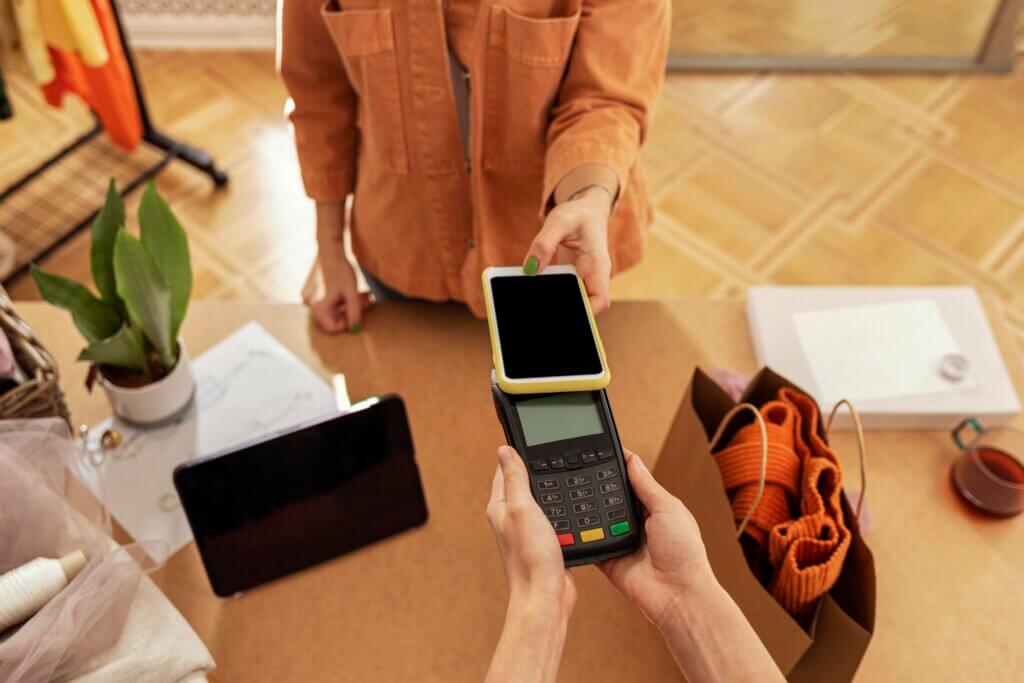Technological advances are always at the forefront, driving business evolution, improving industries, and bolstering competitive advantage. Retail, specifically, has thrived as technology has augmented the industry to help businesses grow, become more efficient, and refine processes to both reduce costs and increase profits.
“Speed, agility, and efficiency are expected of today’s retail businesses,” states the BDC emphatically. “To achieve this, retailers should invest in an electronic inventory control system, a central database, a point of sales system, and an automated statistical forecasting system. These tools don’t simply reduce your overhead and improve your planning. They’ve become essential tools that can provide you with a competitive edge to thrive and grow in the market.”
Embracing technology is crucial for retail as it revolutionizes the way businesses operate. By transforming the overall shopping experience by providing a competitive edge, early adopters in retail tend to be viewed as forward-thinking and customer-centric, attracting tech-savvy consumers. Offering convenient shopping experiences, personalized services, and efficient operations, can differentiate retailers from their competitors.
Automation
Automating retail is beneficial on multiple levels including streamlining operations, improving efficiency, enhancing customer experiences, and enabling retailers to adapt to evolving market dynamics. It empowers retailers to allocate resources more effectively, reduce costs, and provide personalized services, ultimately driving customer satisfaction and loyalty. By employing automation to assist with inventory management, supply chain logistics, and order fulfillment, the overall efficiency improves by reducing manual errors and time-consuming tasks and optimizing overall operations. Retailers can automate repetitive tasks like data entry, stock replenishment, and pricing, allowing employees to focus on more strategic and customer-centric activities. Digital Smart Labels™ automate the labour-intensive task of updating pricing. A job that previously could take days can be performed seamlessly in a matter of minutes, with both accuracy and confidence. With a fully customizable integration into the POS, switching pricing and introducing new promotions on the shelves takes place with more efficiency and control.
“Retail automation is growing in popularity,” highlights the imaginovation insider. “In fact, as per a Statista report, the global retail automation market is expected to be worth 23.58 billion USD by 2026.”
Inventory Management Systems
Implementing technology into inventory management processes in the retail sector has led to improved efficiency, reduced costs, and better customer experiences. Retailers who embrace these technological advancements gain a competitive edge by ensuring optimal inventory levels and meeting customer demands effectively. Inventory management plays a crucial role in the retail industry, and technology has significantly transformed the way retailers manage their inventory. “Inventory management is the heart of a retail business,” states Imaginovation Insider. “An automated inventory management system does many repetitive inventory management tasks on its own with little human effort, making the real-time inventory visible, saving time, and reducing human errors.”
Advanced technology systems such as radio-frequency identification (RFID) tags and barcode scanning enable accurate and real-time inventory tracking for retail operations. This seamless technology assists retailers to optimize their supply chain, reduce out-of-stock situations, and streamline the replenishment process. Ensuring the location accuracy of products for both consumers and staff alike can be maintained with the addition of Danavation’s® Stock2Lite and Pick2Lite platforms. Geared at improving in-store efficiencies and overall improved experiences, these platforms are a game-changer for business owners and their staff, as well as streamline and vastly improve accuracy when it comes to re-stocking shelves.
Data Analytics and Business Intelligence
Data analytics and business intelligence play an essential role in the retail industry. They provide valuable insights to retailers gleaned from data generated by various sources, including point-of-sale systems, customer interactions, online transactions and more. By utilizing the wealth of knowledge that comes with data analytics, retailers can make informed decisions, optimize operations, and enhance the overall customer experience. Data analytics has revolutionized the retail industry by providing valuable insights into customer behaviour and empowering retailers to enhance their overall business performance. Data analytics and business intelligence technologies are utilized in the retail sector to assist with both customer and market segmentation, demand forecasting, price optimization, personalized/targeted marketing, fraud detection and prevention and so much more.
“Since the start of the online retail boom, brick-and-mortar stores have often found it difficult to keep pace with the speed and convenience of online deliveries. However, big data analytics gives physical stores a unique springboard to success, opening the door to improved customer experience and upselling opportunities that even digital competitors can’t match,” explains Nick Schwalbach of SPS Commerce. “Now, both business models are thriving and enjoying greater efficiency and profitability – namely because of the many retail analytics solutions now available.”
Customer Relationship Management Systems
Customer Relationship Management (CRM) systems in retail are essential for fostering and building customer loyalty, improving customer satisfaction, and driving sales. By leveraging customer data, CRMs enable retailers to deliver personalized experiences, targeted marketing campaigns, and exceptional customer service across various channels. CRM systems act as a centralized database for customer information, such as contact details, purchase history, preferences, and interactions. This data is used to gain insights into customer behaviour and preferences, enabling retailers to provide personalized experiences. The systems also assist with custom segmentation, personalization & targeted marketing for current and prospective customers.
“Not all customers are created equal, so the value of a CRM is that it helps you keep the right customers and deploy your precious marketing dollars towards the customers that will return the highest value over their customer lifetime,” said Mike Catania, CEO and co-founder of Locaris. “It is challenging for small businesses to identify and acquire customers, so bucketing them into optimal and suboptimal segments through CRM is inordinately valuable.”
Embracing and adopting technology in the retail industry is essential for staying relevant in a rapidly-evolving industry and meeting the ever-changing expectations of consumers.



